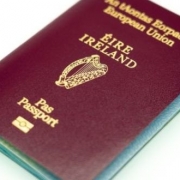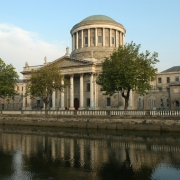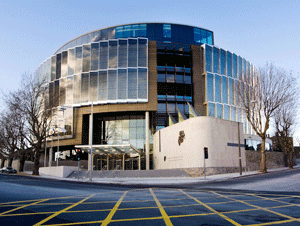RECENT HIGH COURT JUDGMENT UPHOLDS DECISION TO REFUSE IRISH PASSPORT TO CHILD OF SUBSIDIARY PROTECTION HOLDER
The High Court has recently delivered a judgement in T.R.I. (A Minor Suing by his Mother and Next Friend L.B.) v The Minister for Foreign Affairs and the Minister for Justice [2024] IEHC 96.
The case concerned a minor child born in Ireland in September of 2019, whose mother holds a declaration of subsidiary protection status.
Subsidiary protection is granted to individuals facing a real risk of suffering serious harm if returned to their country of origin, or their country of former habitual residence.
In August of 2021, the Applicant’s mother applied for an Irish passport on behalf of her child.
Section 6A(1) of the Irish Nationality and Citizenship Act 1956 states that a person born on the island of Ireland “shall not be entitled” to Irish citizenship unless their parent has, during the four years immediately preceding the birth, a period of reckonable residence of not less than three years.
However, Section 6A(2)(d)(i) qualifies that section 6A(1) does not apply to a child born on the island of Ireland if one parent is entitled to reside in the State “without any restriction” on their residence.
As the mother is a subsidiary protection holder, it was argued that she fell within this subsection of persons who are entitled to reside in the State without any restriction on their period of residence. This would mean the child was entitled to Irish citizenship by birth, even though the mother had less than three years’ reckonable residence in the four years immediately prior to the child’s birth.
This application was refused on the 15th of November 2022, on the basis that Section 6A (2)(d)(i) of the 1956 Act does not apply to a person with subsidiary protection.
The Applicant, through his mother, challenged this decision by way of Judicial Review proceedings in the High Court. It was argued that the mother is entitled to reside in the State without restriction, as the relevant law states that her permission “shall” be renewable, and it is not in any way restricted by time.
The Applicants relied on the Court of Appeal decision in AJK v The Minister for Defence [2020] 2 IR 800, where the Court found that subsidiary protection was “in effect an open-ended right of residence.”
Ms Justice Bolger considered the decision in AJK and stated that she did not consider it established an open-ended right of residence for a person with subsidiary protection. She stated that the comments of Donnelly J must be read in context of the entire judgement and highlighted that the case did not concern citizenship.
Ms Justice Bolger stated that although the law states that the subsidiary protection permission “shall be renewable”, its renewal is in fact conditional; firstly on the continuation of the circumstances that justified the grant of subsidiary protection in the first place, and secondly on there being no compelling reasons of national security or public order.
The Judge stated:
“The mother’s right to renew her permission to reside in the State via her grant of subsidiary protection… is and always was for a temporally restricted permission of a period less than three years subject to conditions.”
Ms Justice Bolger therefore upheld the decision of the Respondent to refuse the child’s application for an Irish passport.
The full judgement can be found here.
If you or a family member have any queries regarding Citizenship, please do not hesitate to contact us.
This blog article has been prepared on the basis of current immigration law and policy, which is subject to change. Please keep an eye on our blog and Facebook page where articles relating to updates and changes in immigration law and policy are regularly posted.




